The photos in the post are objects I’ve seen going back and forth to the bus stop in the last few months. The bus stop means work; my mind wanders to anything but work as I walk. In particular, when I walk in the city I instinctively look for nature amidst the paved spaces. And, I find it.
< Bus Stop Biosphere I | Bus Stop Biosphere III >
Find 1: Flowers in a patch located near Wheelhouse Coffee in downtown Seattle. I have walked by this patch of ground surrounding a tree many times and never paid it much attention. One day in fall, the patch was filled with white flowers. As best as I could tell, this is autumn clematis (Clematis ternifora).
October 2012: Near Wheelhouse Coffee. Autumn clematis (Clematis terniflora).+3.JPG)
Find 2: The part of Fremont Avenue North where I wait for the bus has a block-long row of Horse-chestnut (Aesculus hippocastanum) trees. They are part of the planting around the BF Day Playground. The pictures below show the smooth brown nuts outside of their formidable casings. The nuts find their way across the street and far away from the trees partly by rolling down the hill and partly by squirrels transporting them. The nuts are pleasing to roll around in your hand, a sort of big worry bead.
October 2012: Fremont Ave N. Horse-chestnut (Aesculus hippocastanum).
Find 3: On a sunny day at the right time in the fall, the leaves of Liquidambar are flaming red. I only manage to capture the fruits this time.
October 2012: 8th Ave near Denny Park. Liquidambar fruits.
Find 4: An imposter in the ivy: a red maple leaf hides in the ivy. The legal status of four cultivars of ivy, Hedera helix, in King Country (in which Seattle is located) is a Class C noxious weed. Washington State has three classes of noxious weeds, Class A (the worse), B, and C. Counties within Washington State can chose to enforce Class C weeds or educate residents about controlling them. Here is a part of King County’s education for ivy. In my observation of urban Seattle, Himalayan blackberry (Rubus armeniacus) and ivy are rampant.
November 2012: Fremont Ave N. Ivy and Maple Leaf.
Find 5: While waiting for the bus, I suddenly noticed these spots on the Big Leaf Maple (Acer macrophyllum) leaves. From what I can tell, they are called Speckled Tar Spot (Rhytisma punctatum), a fungus, and to my eyes, they are cool looking. Rhytisma p. will overwinter on the leaves, patiently waiting for spring when its fruiting bodies burst out and get carried to new leaves.
November 2012: Fremont Ave N. Speckled Tar Spot (Ryhtisma punctatum).
Find 6: There is a stairway that connects Fremont Ave N and Evanston Ave N. The edges of the steps glow with moss, a pleasant site in the middle of winter makes me happy (like a daily dose of vitamin D). I wish I could identify this moss more specifically, but I can’t. According to Arthur Lee’s The Cryptogamic Carpet - Mosses in Seattle, a good estimate of the number of species of moss in Seattle is about 100.
These stairs were “spruced” up in 1980 as part of the Fremont Stair Project. There are concrete slabs with incised designs in which moss has happily filled in. Good planning.
January 2013 - February 2013: N 40th St Steps. Bryophte - Moss.

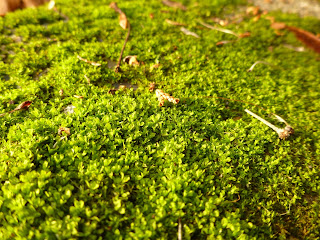

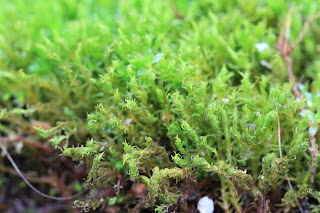



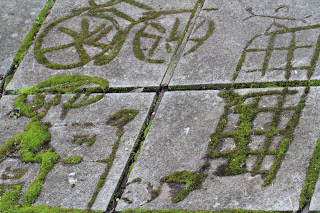
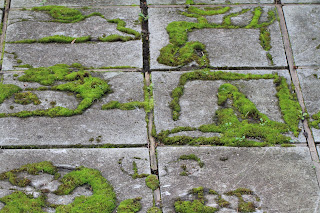



+1.JPG)


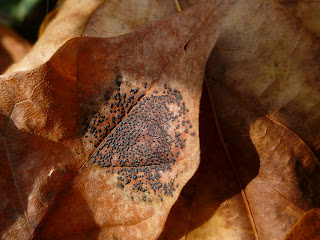
No comments:
Post a Comment
All comments are moderated. If your comment doesn't appear right away, it was likely accepted. Check back in a day if you asked a question.